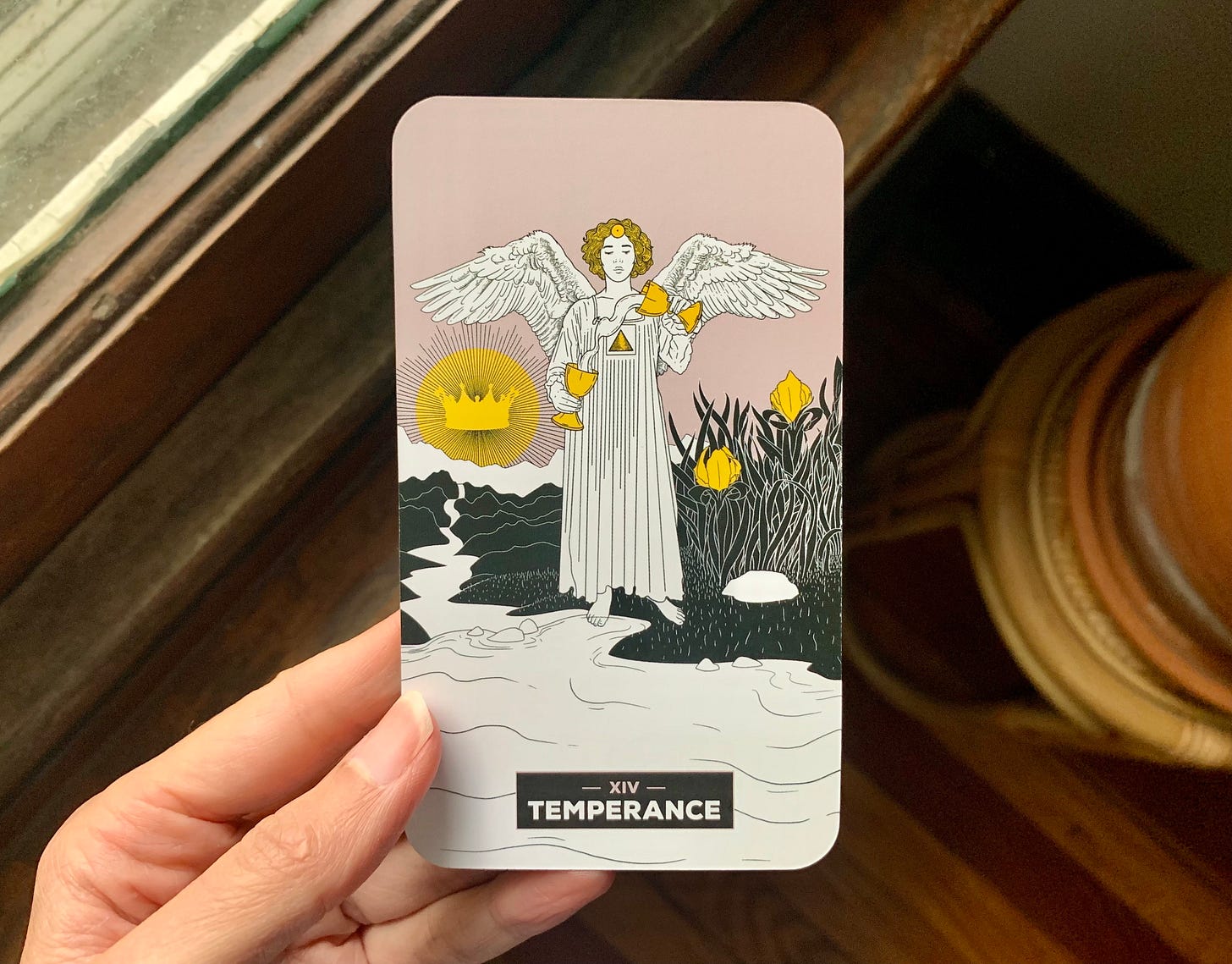
Hi, hitting the heart button is a great & free way to support these Offerings. <3
While preparing for this morning’s meeting on Temperance, I read a paper about philosopher Roland Barthes’ teaching in late seventies Paris. Barthes would begin preparing for each course he taught by locating a fantasy. In 1978, having identified “the desire for neutral,” Barthes developed a course on the topic. The lecture notes would later be published as a book, which is called The Neutral.
The article I read, which is called “A great ‘pedagogy’ of nuance” by English professor Nicholas de Villier, describes Barthes’ theory of the Neutral as “that which ‘baffles’ the paradigm.” If paradigmatic meaning relies on binary oppositions, the neutral is the secret third thing born from the weariness of getting locked into a side. The “argument” of Barthes’ course was that the Neutral involves the possibility of suspension from the “arrogant conflicts of meaning” which might yield a new way of seeing. It’s related to withdrawal, which I wrote about a few weeks ago.
To be clear, Barthes’ theory of the Neutral is not about taking no stance, and my writing about it is in no way to suggest that to be impartial or open-minded about genocide are viable options. During funerals on Saturday in the Central Gaza strip, a Palestinian person referred to by Reuters only as Khatib said, “Here they are, in pieces, here is my sister-in-law, without a head, my aunt is without a head, what is this injustice? Until when will this go on? We are exhausted, by God we are exhausted, I have lived in tents for the past seven months."
Even the United States, a nation founded on genocide, has paused sending more weapons for the invasion of Rafah, despite Israel’s claim that it can’t “win” the “war” without bombarding the area where more than half of Gaza’s population were sheltering prior to recent days’ orders to evacuate. Those who cannot evacuate are of course the most vulnerable; sick, elderly, and disabled. It is a truly sickening situation and there is nothing more important than making it stop.
One of the main reasons I like reading philosophy is that, as it turns out, there are far more interesting and useful meanings for words like neutral than the ones I see most often used. To reiterate, Barthes’ “Neutral” is active, not passive. As writer and curator Maximilian Geymüller has written, Barthes’ neutral is “that which is neither A nor B, and resists classification to either. Neutral thus stands for action, resistance and animation.” In Barthes’ own words, it “is an ardent, burning activity…not to be conceived or connoted as a flattening of intensities but to the contrary as a bubbling up.”
In terms of how the Neutral might relate to Temperance, I’m still working that out—the word temperance has to do with moderation and avoiding extremes—but the angel in the card makes me wonder. First, they’re neither mammal nor avian but a third sort of being. Second, they’re holding two cups in opposite hands. They’re displaced from the “conflict” of the cups, yet involved in an intimate way. And I love the symbol of angel as that which might “baffle the paradigm” as they resist taken for granted categories; they’re neither earthbound nor airborne, not human nor bird, they’re not gods but not quite mortals, either.
But what I loved most about the article was de Villier’s description of how Barthes approached teaching. At the outset of his tenure at the College de France—a position for which Michel Foucault recommended him—Barthes expressed his hope to continually renew a teaching style of “presenting a discourse without imposing it1” thus “acknowledging the inevitability of power in discourse but finding the means of loosening, baffling, lightening this power.2”
Barthes’ teaching style involved “multiple digressions and supplements…a series of figures, traits or ‘twinklings’ (scintillations) of the Neutral…intertexts chosen with a kind of ‘joyous dilletantism’ for the pleasure of reading…and a range of doctrines which he cites without pretending to know (…‘I know nothing and do not pretend to know anything about Buddhism, about Taoism, about negative theology, about Skepticism’3).”
I’ve spent a lot of time talking with people whose opinions I trust these last months about a deep fear I have that I dabble too much to make good use of the things that I read. This language—especially “twinklings” and “joyous dilletantism”—really got me excited because I feel like it gets to the heart of both what I do and aspire to do when I share ideas either in writing or teaching.
I want to demonstrate what this process can feel like, and stimulate thinking, feeling, and action through a mosaic of beautiful snippets, not out of a need to possess them as some kind of expert but of pure admiration for them. This is the vital place that I think Barthes is talking about with the Neutral, which “plays on the razor’s edge: in the will to live but outside of the will-to-possess.” Thank you so much for giving me an outlet to do this.
In the end this all may be a very long-winded way of saying that after an extended break from teaching I’m offering Tarot for Change: An Introduction to Using the Cards for Spiritual Practice twice next month. This is the latest iteration of my Tarot 101 class that’s evolved over the years and there are two options, June 1 & June 8. I’m also really thrilled to share that registration for a revised edition of the journaling workshop EXPOSING SECRET TEXTS TO THE FUTURE will be opening up in the next week or two. Paying subscribers will get first dibs.
Hi, hitting the heart button is a great & free way to support these Offerings. <3



